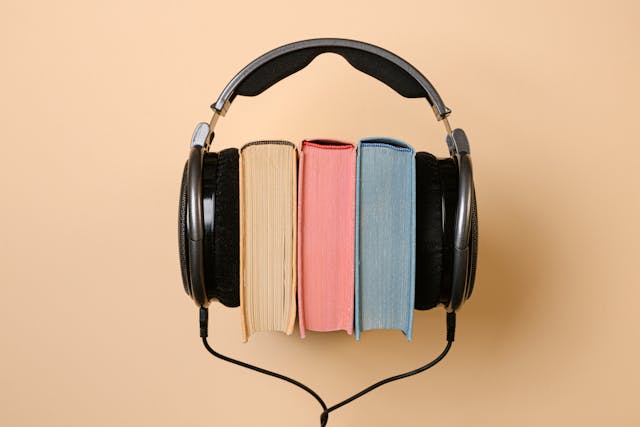In a world where digital content rules our screens and multitasking defines our routines, audiobooks have quietly emerged as one of the most powerful storytelling mediums of our time. What was once considered a secondary format, reserved for long car rides or accessibility purposes, is now a mainstream choice for book lovers across the globe. But the true power of audiobooks lies not only in their convenience, but in how they transform the experience of reading into something deeply immersive.
The transition from printed text to spoken word might seem subtle — the same words, the same chapters — but it creates an entirely different emotional and cognitive response. Hearing a story performed rather than reading it quietly engages the brain in ways that amplify its meaning, mood, and memory. The narrator becomes a guide, not just delivering the story, but embodying it. And through this human connection, audiobooks bring literature to life in vivid, unforgettable ways.
 The most celebrated narrators are not simply readers — they are performers, interpreters, and collaborators in the storytelling process. Through intonation, timing, and vocal emotion, they create worlds that feel tangible. A melancholic pause can speak volumes; a trembling whisper can carry more weight than a paragraph. Suddenly, the emotional subtleties of a character’s journey become audible and immediate. For many listeners, this vocal nuance allows them to connect more deeply with a book than they ever did through silent reading.
The most celebrated narrators are not simply readers — they are performers, interpreters, and collaborators in the storytelling process. Through intonation, timing, and vocal emotion, they create worlds that feel tangible. A melancholic pause can speak volumes; a trembling whisper can carry more weight than a paragraph. Suddenly, the emotional subtleties of a character’s journey become audible and immediate. For many listeners, this vocal nuance allows them to connect more deeply with a book than they ever did through silent reading.
This transformation is especially evident in classic literature and philosophical works, which can sometimes feel dense or intimidating on the page. Platforms like philosophy and literature have made it their mission to curate titles that are not only intellectually rich but aurally engaging. By selecting narrators who understand the rhythm and tone of great texts, they offer experiences that are both accessible and profound. The result is not a diluted version of the book — it’s a new dimension of it.
Audiobooks also reawaken our connection to the oral tradition. Before Gutenberg’s press and widespread literacy, storytelling was an act of voice and ear. Wisdom, myth, and morality were passed down through performance. In this light, audiobooks are not a modern invention, but a revival of an ancient human experience. They restore the communal aspect of literature — the voice telling the tale, the listener leaning in, the invisible bond created in the space between them.
Moreover, the dynamic nature of voice affects how we process and remember information. Studies show that listening engages both the auditory and language centers of the brain, enhancing comprehension and retention. Emotional tone and prosody — the rhythm and melody of speech — add cues that help us recall narrative elements and empathize with characters. This is why audiobooks can often feel more “alive” than text, especially for auditory learners or those with busy, visually saturated lives.
In today’s fast-moving culture, where attention is fragmented and screen fatigue is real, audiobooks offer a mindful alternative. They allow for deep literary engagement without the glare of a screen or the static of social media. Whether enjoyed during a walk, commute, or evening unwind, audiobooks invite focus and imagination. They carve out moments of presence and narrative flow, which many readers crave but struggle to find in traditional reading settings.
Voice also introduces a unique kind of intimacy. When a story is read aloud, especially by the author or a narrator with expressive depth, it feels personal. You’re not just reading a story — you’re being told one. And that distinction changes everything. The words hit closer to the heart, the silences speak louder, and the experience lingers longer. This intimacy is what drives audiobook fans to follow specific narrators with the same passion they have for their favorite authors.
For writers, this shift in format opens up creative possibilities. Many now craft their prose with performance in mind, considering how sentences will sound as well as how they’ll read. This symbiosis between page and voice is transforming literature into something more fluid, performative, and adaptive. Writers, narrators, and listeners are forming a creative triangle — one that reshapes how stories are written, told, and received.
From classic novels to contemporary memoirs, from quiet introspection to epic adventures, the audiobook format continues to prove its power. It doesn’t replace the printed page, but enhances it — adding texture, emotion, and rhythm that bring stories to life in new and deeply resonant ways. In the voice, the story breathes. And for many, that breath is what turns a book into something unforgettable.

